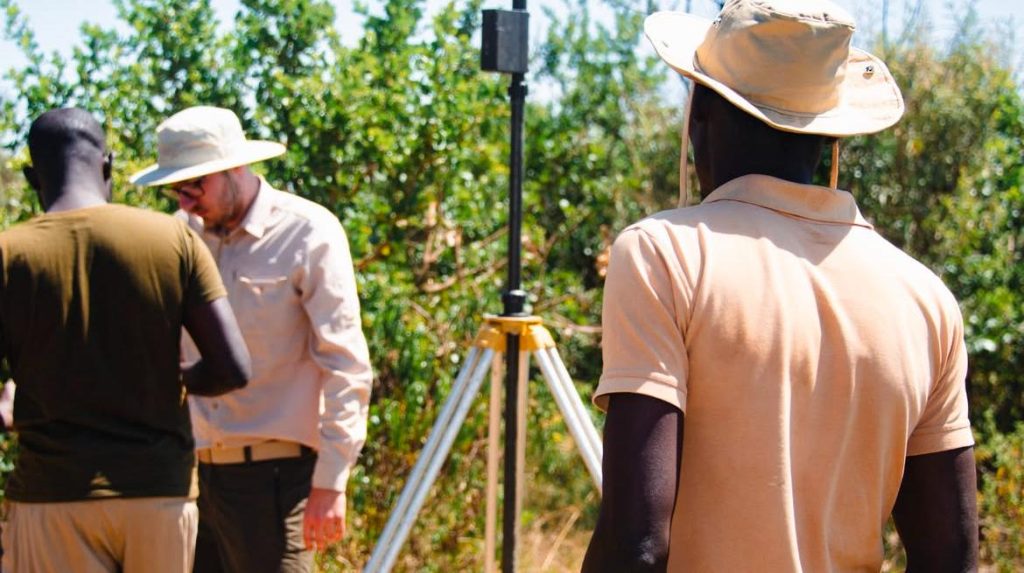
Harnessing Grasslands for Carbon Storage: The CARBOGRASS Project
The photo used is courtesy of Mukutan Conservancy.
The NRF-funded project, The Impact of Grassland Management on Soil Carbon Storage (CARBOGRASS), is being implemented by Jaramogi Oginga Odinga University of Science and Technology (JOOUST) under the leadership of Prof. Felix Ngetich as the Principal Investigator. This project seeks to assess how improved grassland management can enhance soil carbon storage, contributing to climate change mitigation and sustainable land use.
The Global Importance of Grassland Management
Grasslands and pastures cover about 40% of the Earth’s ice-free land surface and store approximately 20% of the global carbon stocks. However, unsustainable land use practices, such as overgrazing and inadequate management, have led to significant degradation and desertification. Reversing this trend presents a major opportunity for climate protection, as improved grassland management could capture up to 150 Tg of soil carbon per year. The CARBOGRASS project contributes to these global efforts by investigating and promoting sustainable grassland management strategies tailored to Kenya’s ecological and agricultural needs.
Project Objectives
The CARBOGRASS project is guided by four key objectives:
- Assess the potential of improved grassland management for soil carbon (C) and nitrogen (N) cycling, as well as overall soil health, while accounting for climate change effects.
- Analyze the impact of grassland management on soil carbon retention and sequestration, identifying best practices for maintaining existing soil C levels and enhancing carbon storage capacity.
- Develop high-quality datasets on grassland carbon and nitrogen cycles, as well as management-induced soil carbon stock changes, to support ecosystem modeling and inform policy and land management decisions.
- Create a methodological framework for evaluating different grassland management approaches, with the goal of optimizing soil carbon sequestration, improving ecosystem services, and supporting sustainable livelihoods under changing environmental conditions.
The project is being conducted in multiple locations, including Mukutan Conservancy, a vital ecosystem within Kenya’s rangelands. These sites provide diverse environmental conditions for assessing the impact of grassland management on soil carbon storage. By studying different landscapes, the project aims to develop adaptable strategies that can be applied across various ecological zones.
Project Activities
To achieve these objectives, the project has undertaken key activities, including:
- Recruitment of Researchers: The project has engaged two students (one male and one female), contributing to capacity building and knowledge transfer in climate and environmental science.
- Field Data Collection: Extensive field studies have been conducted to gather critical data on soil properties, carbon storage levels, and nitrogen cycling under different grassland management regimes.
- Soil Sampling and Surveys: The project team has successfully collected and analyzed soil samples to evaluate carbon sequestration potential, providing insights into soil health and fertility.
Project Impact and Expected Outcomes
The CARBOGRASS project is set to make significant contributions to sustainable land management and climate change mitigation. Some of the key expected outcomes include:
- Development of a standardized protocol for assessing soil carbon storage, enabling researchers and policymakers to evaluate the effectiveness of different grassland management strategies.
- Unlocking the potential of carbon sequestration in pastoral lands, ensuring that grasslands—often seen as marginal lands—play a crucial role in climate resilience and food security.
- Providing evidence-based recommendations for policymakers and land managers, facilitating the adoption of sustainable grassland management practices that balance environmental conservation with economic and agricultural needs.
- Enhancing knowledge and capacity building by involving students and young researchers in climate-related studies, fostering expertise in sustainable land management.
By bridging scientific research with practical applications, the CARBOGRASS project is poised to make a lasting impact on environmental sustainability, ensuring that Kenya’s grasslands contribute to both climate resilience and agricultural productivity. As the project progresses, its findings will inform strategies for optimizing carbon storage in grassland ecosystems, reinforcing their role in combating climate change and supporting rural livelihoods.